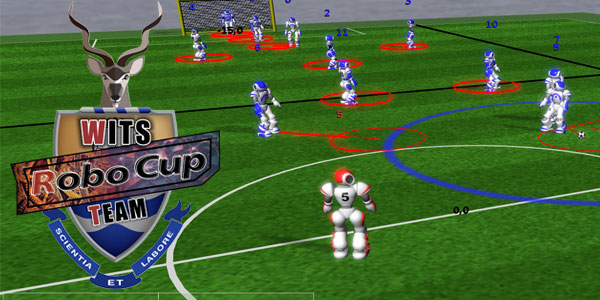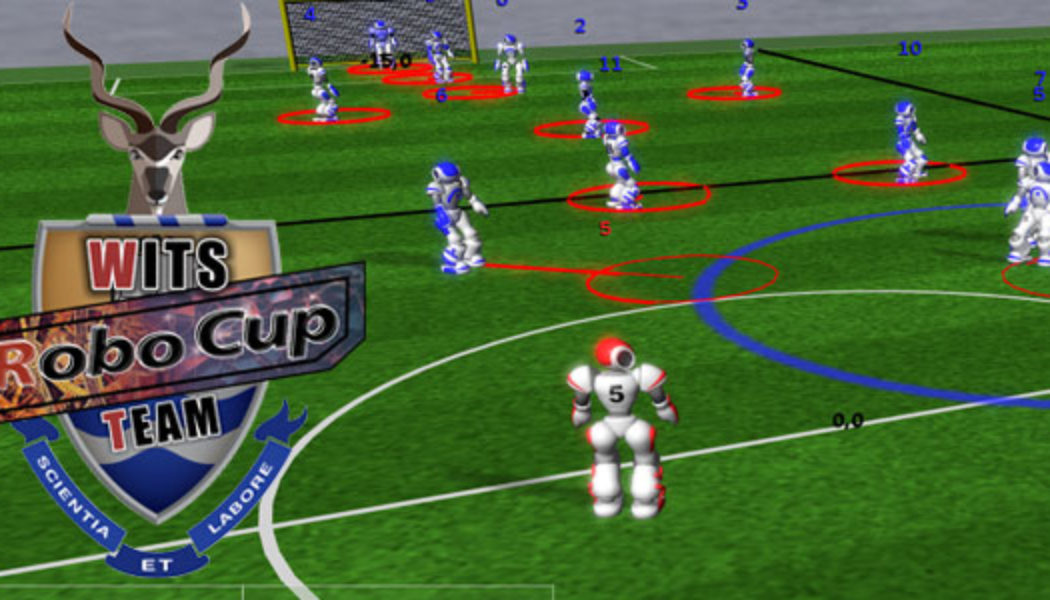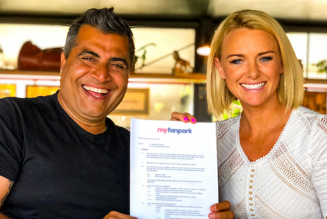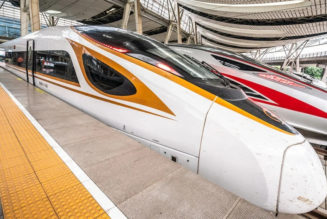/* custom css */
.tdi_4_0f9.td-a-rec-img{ text-align: left; }.tdi_4_0f9.td-a-rec-img img{ margin: 0 auto 0 0; }
For the first time, a Wits University team will compete in the international RoboCup tournament.
RoboCup, the world cup for soccer robots, is a major annual event on the artificial intelligence (AI) and robotics calendar with a goal to advance the state of the art of intelligent robots.
It sees teams from across the globe competing in different soccer leagues to show their mastery in AI and machine learning. The soccer robots can either be working physical robots or simulation robots.
/* custom css */
.tdi_3_2e0.td-a-rec-img{ text-align: left; }.tdi_3_2e0.td-a-rec-img img{ margin: 0 auto 0 0; }
Wits will be participating in the 3D simulation league and this year’s tournament takes place virtually next week from 22 – 28 June 2021.
The Wits FC team consists of computer science students from the School of Computer Science and Applied Mathematics (CSAM) in the Faculty of Science, and is headed by Branden Ingram (PhD candidate) and MSc student Andries Bingani.
The team is being supported by Associate Professor Benjamin Rosman and Dr Pravesh Ranchod from the Robotics, Autonomous Intelligence and Learning (RAIL) research group in CSAM.
The rest of the members are:
- Faisal Saleem
- Ghulame Mujtaba Arbi
- Devon Jarvis
- Michael Beukman
- Guy Axelrod
“RoboCup presents a great opportunity for students to work together as a team and then compete against other students from around the world. Representation from Africa has always been minimal, at best,” says Professor Rosman.
“For our team to be able to compete in the tournament is important both for Wits’ representation internationally and for providing our students with more exposure to international AI and robotics.”
“These kinds of activities help promote science and technology by providing our students with a fun application of the theory in which they are so deeply immersed in their studies, and it is an accessible means of outreach to the general public as many of the challenges we tackle in research can be explained in relatable terms,” Rosman continues.

3D Soccer Simulation League
Up to 24 teams will participate in this league that focuses on AI and team strategy. These teams are all required to develop and submit a team of independent intelligent moving agents (players) that play soccer on a virtual field inside a computer.
Co-Captains Ingram and Bingani explain: “The 3D league increases the realism of the simulated environment by adding an extra dimension and more complex physics. We didn’t create the simulation but had to develop the AI and strategy for a group of agents which play within the simulated environment. In other words, we tell the players what to do given a certain situation, but we did not build the stadium they play in”.
The goal is that if they can develop intelligent players in the simulated domain, this information can then be utilised in the real world where such information is not so easily obtained.
“Our focus in this first iteration of competing was on adding our own high-level behaviours, which enabled the agent to make appropriate decisions according to different situations. Specifically, one component we implemented was a position assignment algorithm that seeks to optimise which agent goes to which position in a defined formation.”
The Wits FC robotics team have been in development for roughly two years. According to Ingram and Bingani it was ‘slow going’ in the beginning as they first had to understand what is available to them to develop their entry.
Then installing the necessary software packages was difficult at the start but has been worthwhile, they say because the experience gained has resulted in them being able to create a far simpler method of doing things. These processes were then captured in tutorials that can benefit future Wits teams.
Learning and Research Application
Teams are also required to submit a conference-style paper which is reviewed by the RoboCup committee.
In order for development and innovation to be promoted there is an added requirement that each teams’ contribution contains some element of a novel approach on the problem of RoboCup. The code itself should also demonstrate the use and benefit of this new approach.
“Being new to RoboCup meant the task of implementing a unique way of solving some problem was in itself a difficult problem,” explain Ingram and Bingani.
“However, through working together and individually, we were able to identify problems which we were also able to solve in creative ways. Specifically, our approaches to Formation assignment and Passing in the soccer game.”
A Dream Team
According to Rosman, RoboCup is a “wonderfully concrete application of many of the concepts that the students explore in their courses, and provides exciting open-ended challenges to be solved”.
For example, they have applied ideas taught in second-year algorithms courses and postgraduate machine learning courses, while also thinking about the structure of code required for a larger project with many contributors.
It also allows students of various levels the opportunity to work together in a fun and competitive environment.
Rosman says by taking part in RoboCup they are also hoping to use their experience to help other local universities start their own teams, and then to establish local leagues and tournaments to further advance science and technology in the region.
Edited by Luis Monzon
Follow Luis Monzon on Twitter
Follow IT News Africa on Twitter
/* custom css */
.tdi_5_a08.td-a-rec-img{ text-align: left; }.tdi_5_a08.td-a-rec-img img{ margin: 0 auto 0 0; }









